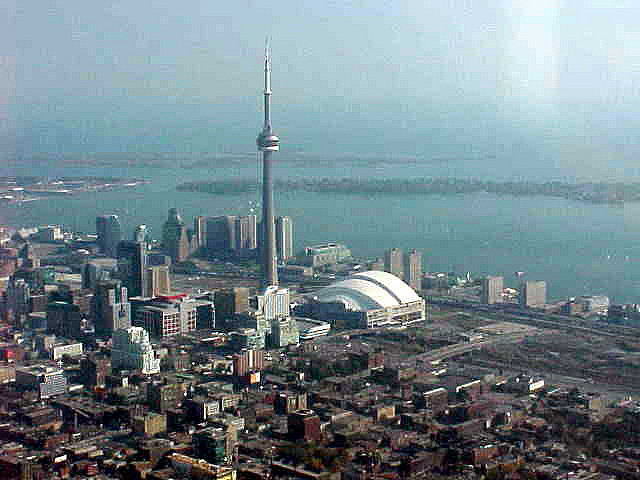For the first time in decades I worked in a Toronto election.
I thought that Olivia Chow would make a great mayor and I was worried that Rob Ford could win, but I was also concerned about the anyone-but-Ford movement. We have seen a strong move to strategic voting in most of the last few elections but in this case it made absolutely no sense. We had an excellent candidate for mayor in Olivia and John Tory is a Tory, true blue. So why on earth would anyone progressive vote for him?
What happened is well-known. At the start of the campaign Olivia seemed to have support from Liberals and even some Conservatives. She positioned herself as the candidate who could beat Rob Ford but her campaign was lackluster at best during the Spring and Summer, when somehow John Tory managed to convince the Liberals and sane Conservatives that he was the best choice to beat Ford.
The conventional wisdom that urban voters don’t think about elections until after Labour Day proved wrong, as much conventional electoral wisdom has lately. When Olivia’s campaign finally got legs in mid-September, people had already made up their minds. I heard so many people say, “I prefer Olivia but I think John Tory is the only one who can beat Ford.” She stayed around 20% in the polls and in the final results. Some of us wanted to believe the polls were wrong but they were surprisingly accurate.
John Tory, who is right wing on economic issues but liberal on social issues, won. Olivia appears to have kept her base support of NDP voters in downtown Toronto but the Liberal voters and wealthy areas went massively for Tory. Yet I don’t think this was the biggest problem. The two most important problems had nothing to do with Tory or even the early weaknesses of Olivia’s campaign.
The biggest problem was the Ford vote. Common sense would tell you that when Rob Ford dropped out of the race, his thuggish brother Doug could never hold his vote but common sense doesn’t work too well either. It’s anecdotal but I believe that most Ford voters would have voted for Olivia not Tory. Given that Ford is far to right of Tory, that doesn’t make much sense either but both Olivia and Ford reported that the second choice of most Ford voters was for Olivia. They don’t see her as part of the elite and this was a populist vote more than a right-wing vote. It’s something new in Canada; although we are seeing it around Europe.
In the face of the neo-liberal restructuring of our economy, democracy and communities, the social democratic left has utterly failed to provide an alternative or even a critique of an economic system that is rapidly pushing the working class into poverty and precarity. New social movements are exploring alternatives but have yet to develop a clear theory of transformation that is accessible to most people.
In Toronto and most cities in Europe, the centre of the city has been gentrified pushing many of the poor and working class into the outer suburbs, where their problems are different. As University of Toronto professor David Hulchanski points out in his important paper Three Cities within Toronto, Toronto is divided into three cities and the poorest are in the Northwest and the Northeast where Ford had his strongest vote. The population of these areas are also overwhelmingly people of colour and immigrants. According to Hulchanski, 66% of the poorest areas are people of colour compared to 16% of the richest area.
With no solutions coming from the Left, the poorest and most marginalized people are turning to right populism. In the Spring European elections far-right populist parties, much more explicitly racist than the Fords, also showed a surprising surge. So we can’t just attribute the vote to Rob Ford’s weird charisma or a sympathy vote for his brother because of Rob’s cancer. Something deeper is happening.
The other factors are racism and sexism. There was an outrageously racist campaign against Ausma Malik who was running for school trustee in a downtown ward. On the basis that she spoke at a demonstration against Israel’s attack on Gaza, which I also spoke at, her campaign signs were defaced and she was attacked as a terrorist sympathizer. She wears a hijab. Solidarity with Ausma was swift and the racist attacks backfired as she won decisively in the election. But there were also racist and sexist attacks against Olivia, especially on her web site. Her campaign did not make it an issue until she was openly attacked at one of the many debates. Even more disturbing was the fact that neither Ford nor Tory denounced the attack during the debate. In addition, Tory said he didn’t believe there was any such thing as white privilege when he was asked by a TV reporter.
Even more serious was the publication in the Toronto Sun of a sexist racist cartoon of Olivia Chow. The Sun refused to apologize saying Olivia should “smile and move on.” There was outrage from the Toronto Star but not much else.
It’s hard to know if racism and sexism affected Olivia’s election results but I believe it was a factor. It was the first time that I can remember that racism was so obvious in an election campaign. Toronto is known for its diversity so it is disturbing when racism becomes so overt.
The results of the Toronto election raise serious challenges for all of us who consider ourselves progressive. There is a lot of anger and alienation directed at the current system but somehow the left has been unable to channel that anger, allowing a populist right to grow, at least in our country’s biggest city.
We have a lot of work to do.
Judy Rebick is an author and feminist activist. Twitter: @judyrebick.
photo: flickr/robert taylor




